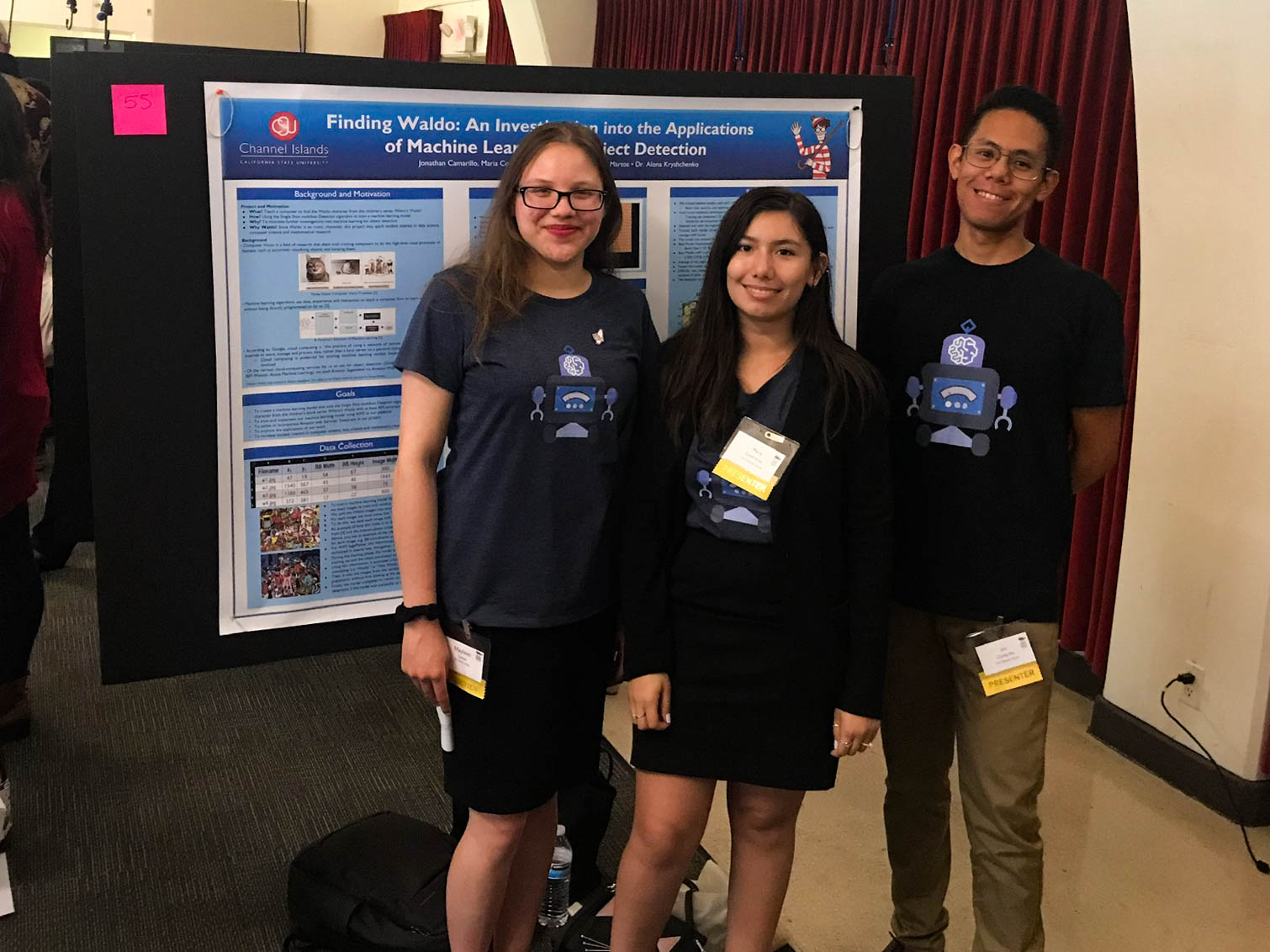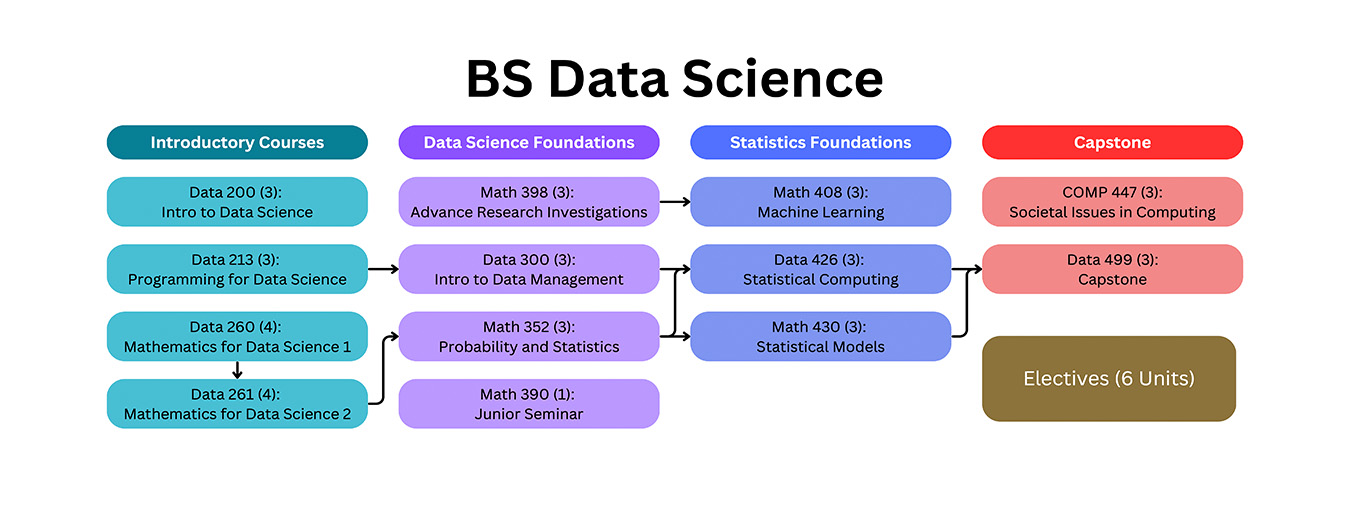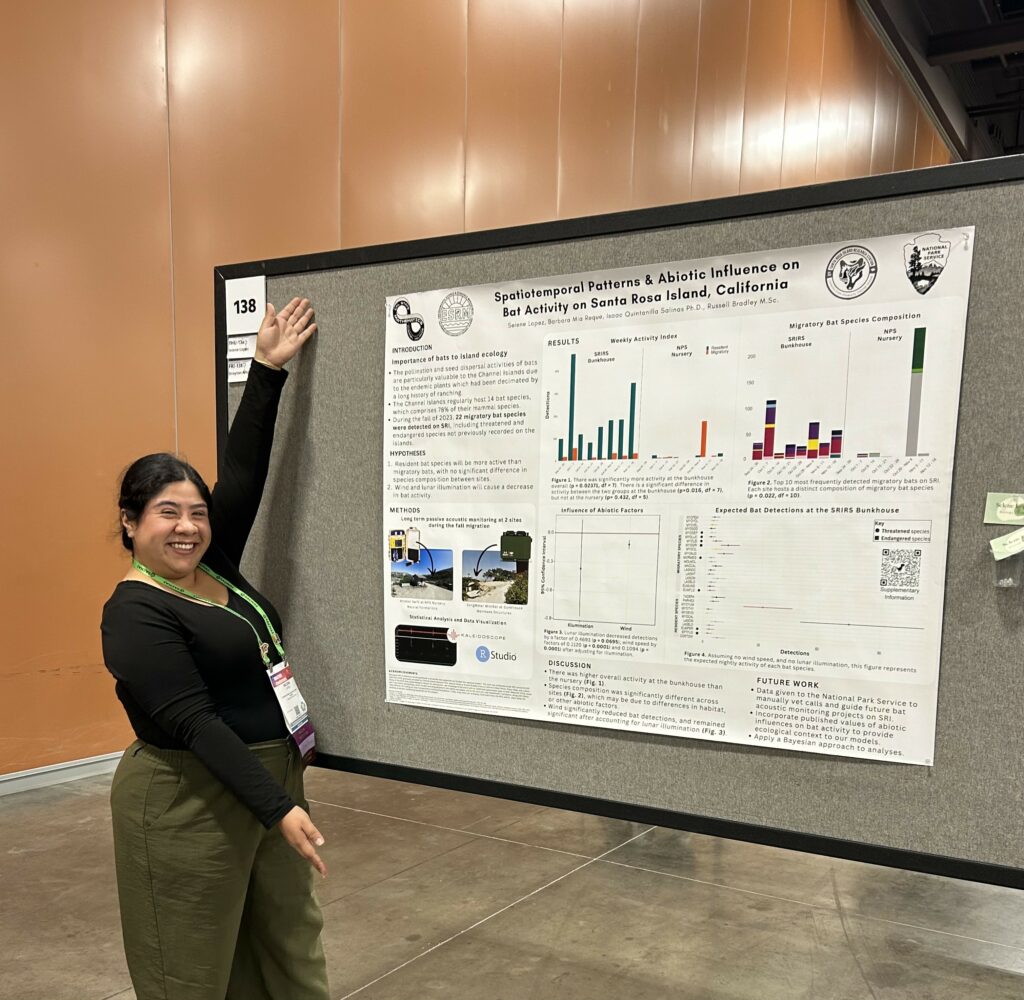
Are you good at problem solving? Do you like to answer questions using data? By studying Data Science at California State University Channel Islands (CSUCI), you'll receive a rigorous, rewarding education that prepares you to be a professional who has the skills for collecting, shaping, storing, managing, and analyzing data that allows organizations to make data-driven decisions. Visit Cal State Apply to get apply now!
Major (New as of Fall 2025)
- Data Science B.S. - 120 Units
Minor
Your Program
Data Science is the study of extracting and analyzing data to create information to answer questions. Students in this degree learn various data curation and processing techniques and tools from mathematics, statistics, and computer science. Using data as the core, the Data Science major will equip students with the skills they need for the entire life-cycle of a data science project. Courses include learning mathematics, statistics, computer programming, communication, and project management. The Data Science major will prepare students for careers in data-oriented fields. '
Your Future
If you have a passion for discovering answers through data analysis, then earning a degree in Data Science should be your next step. You will be prepared for employment and careers across all major industries, Data Science graduates offer strong analytical and quantitative skills that are sought by a wide range of employers.
Top Careers Include: 
- Data Scientist
- Machine learning engineer
- Machine learning scientist
- Application architect
- Enterprise architect
- Data architect
- Infrastructure architect
- Data engineer
- Statistician
- Data Analyst
First Year Roadmap

View or download the first year roadmap (PDF, 32KB).
Programming Foundation
Students will learn R, Python, and SQL for data science to gain the essential tools for analyzing and managing data. R specializes in statistical modeling and visualization, while Python offers versatility in data manipulation, machine learning, and automation. SQL provides the foundation for querying and organizing large data sets. Together, these skills empower students to handle data work flows and extract insights for real-world challenges.
Mathematics Foundation
Students will learn concepts from calculus and linear algebra to characterize relationships and structures within data sets. Calculus equips them with tools to model change, optimize functions, and understand concepts like rates and accumulation. Linear algebra focuses on vector spaces, matrices, and transformations, providing the backbone for data representation, dimensionality reduction, and solving systems of equations.
Statistics Foundation
Students will gain an understanding of probability and statistics to interpret uncertainty and identify patterns in the data. Probability provides a framework for understanding randomness, calculating likelihoods, and modeling outcomes. Statistics focuses on collecting, summarizing, and interpreting data through methods such as hypothesis testing, regression analysis, and confidence intervals.
Data Science Foundation
Students will learn the fundamentals of data science to explore and analyze data effectively. They gain a foundation in data collection, cleaning, and transformation, ensuring data is prepared for analysis. Through statistical techniques and programming, they learn to uncover patterns, build predictive models, and visualize insights.
Data and Society
Students learn the fundamental concepts of data ethics, reproducibility, and communication to solve real-world problems with accuracy and integrity.
Capstone
The data science capstone is a culminating project where students apply their knowledge and skills to solve a real-world problem using data-driven methods. Students typically work on complex data sets, develop predictive models, and present actionable insights to community members.
Courses
Introductory Courses
- Data 200: Introduction to Data Science
- Data 213 : Programming for Data Science
- Data 260: Mathematics for Data Science 1
- Data 261: Mathematics for Data Science 2
Data Science Fundamentals
- Data 300: Introduction to Data Management
- Math 352: Probability & Statistics
- Math 398: Advanced Research Investigations
- Math 390: Junior Seminar
Statistics Fundamentals
- Data 426: Statistical Computing
- Data 430: Statistical Models
- Math 408: Machine Learning
Capstone
- Comp 477: Social Issues in Computing
- Data 499: Capstone
Apply Now
Discover how to join CSU Channel Islands and become part of our growing Data Science program. Follow the steps below based on your applicant type.
Freshmen Applicants
Start your journey as a CSUCI Dolphin! Before completing your application, be sure to review the admissions requirements for first-year students. Learn more at Freshmen Admissions Requirements. When you're ready, submit your application through Cal State Apply.
Returning Students
Welcome back! If you’ve previously attended CSU Channel Islands, there’s no need to submit a new application. Visit our Returning Students page for guidance on resuming your academic journey.
Transfer Applicants
Ready to take the next step? Explore our streamlined process for transfer students and review the admissions requirements before applying. Find all the details at Transfer Admissions Requirements. Once confirmed, apply via Cal State Apply.

